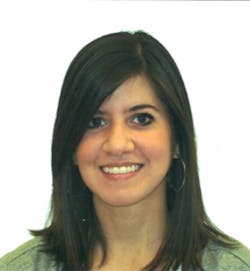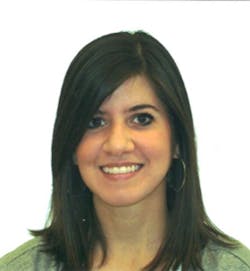Non-profit dental clinic turning the underprivileged into professionals
For more than 28 years, San Antonio Christian Dental Clinic (SACDC) has given millions of dollars worth of free dental care to impoverished, homeless, and disadvantaged adults in Bexar County, Texas. However, in 2008 the clinic decided to take a different, more proactive step toward affecting more measurable change in the community.
“The clinic wanted to dream big,” said Gloria Canseco, Executive Director. “We wanted to extend Christ’s healing touch to include a larger mission — moving struggling Bexar County adults toward self sufficiency.”
Thus, the SACDC Training Program was created.
An evolving product of San Antonio Christian Dental Clinic’s Board of Directors, and with support from the Greehey Family Foundation, the current training program is aimed at disadvantaged students. It provides them with a 15-week-long course that prepares them to work as a dental assistant.
Most importantly, SACDC provides this training completely free of charge. An equivalent private or university program costs around $15,000. With the Greehey Family Foundation’s funding, the training program, now incorporated as a regular clinic program, covers costs for books, vaccinations, uniforms, bus passes, tuition, and exams.
“We wanted to eliminate all barriers,” said Canseco. With this support, the program has trained 58 students in its four full years of operation.
One of these students is Sherry Church (pictured right), who joined the program in 2009. “I have always had an inclination toward helping others in need,” said Church. “I was so glad to be able to become a part [of the clinic].”
Along with her fellow students, Church received classroom and hands-on instruction in privacy and regulations, tooth morphology dentition, and sterilization techniques. For some of the more specialized subjects, such as radiology, SACDC reached out to interested San Antonio dentists, who took time out of their practices to provide professional instruction at the clinic on a volunteer basis.
“We have rigorous expectations for our students in their attendance and performance,” said Canseco. Church agreed. “Some of the material was challenging,” she recalled. “Becoming acquainted with radiology for the first time was especially complex.”
RELATED ARTICLES:
Income power of hygienists and dental assistants in 100 U.S. cities
Dental assistants: Recognize your success!
Students often go hands-on with patients during their 15 weeks, but it is after the course ends that the truly rewarding work begins. “Each student is required to complete 96 hours in service to the clinic,” explained Dr. David Rickey, SACDC’s Dental Service Director. During these hours, students put their training to good use assisting volunteer dentists to serve the clinic’s constituency of disadvantaged patients. In 2013, the clinic provided $3.4 million worth of free dental services, conducting just over 56,000 procedures on nearly 8,000 patients.
Church used her required hours to fulfill her proclivity for philanthropy. “I felt blessed,” she said. “Everyone I served was so grateful. I remember leaving the clinic every day feeling tired, but very satisfied.”
The training program marks a two-prong movement against homelessness and poverty in San Antonio. First, it takes disadvantaged community members, including two local institutions that shelter the homeless, and provides them with specialized education. Sixty percent of the students are single mothers. “This training is marketable anywhere in the country,” said Dr. Rickey. In this way, the program provides prong two, which is helping the homeless population with the tools they need to be successful and independent.
But the students are not the program’s only beneficiaries. Their training and service hours also help SACDC fulfill their promise of free dental care for low-income Bexar County adults. Volunteer dentists offer their services at the clinic, Dr. Rickey explains, but trained dental assistant volunteers are much more difficult to come by.
“Trained dental assistants often work full-time in private practices,” he said. “Their duties extend beyond the dentist chair, and so they don’t have much time to volunteer.” Graduates of SACDC’s training program provide the clinic with much-needed manpower, supporting the clinic’s volunteer staff of dentists by taking X-rays, ensuring patient comfort, and providing direct chairside assistance.
Today, Church is a fourth-year dental student at the University of Texas Heath Science Center Dental School. Recently married, Church plans to take her skills into the private sector. According to aftco.net, the national ratio of dentists to citizens in the U.S. currently rests at an average of 60 to 100,000. In Bexar Country, the average ratio is 41 to 100,000, and it dips down to 23 to 100,000 in the area around SACDC. Other sites in the country are entirely devoid of dentists, despite containing populations of over 6,000. Such areas are known as “dental deserts.” By lending her expertise in such areas, Church plans to help alleviate this dire situation.
The training program continues to grow. Unique in Texas, the program hopes to continue to train students while communicating their accomplishments, with the hope of inspiring other organizations to adopt their methods.
“It’s been a huge success,” said Canseco. “While helping to make members of our community self sufficient, we are nurturing participants, awakening them to their potential, and assuring that they are job-ready when they leave us.”
“The program gives our graduates confidence,” said Sarah Martinez, Program Manager at the clinic. “It provides the confidence to go out and get a good job and get off government assistance.”
By providing vocational training to those in need, San Antonio Christian Dental Clinic combats poverty and adds skilled dental assistants into a professional field that needs them.
Disclaimer: *To become an RDA in Texas, a dental assistant must:
1. Successfully complete a current course in basic life support, AND
2a. Successfully complete a mandatory course of training specified by the Texas State Board of Dental Examiners (TSBDE) that includes procedures for positioning and exposing dental X-rays, jurisprudence, and infection control, and pass the required examination, or
2b. Earn the national Dental Assisting National Board (DANB) CDA certification and complete the Texas Jurisprudence Assessment, AND
3. Complete an application for registration with the TSBDE, pay all fees required by the TSBDE, and satisfy the requirements in 22 Tex. Admin. Code §101.8 concerning an applicant’s criminal background.
Only the TSBDE is authorized to issue the RDA credential. Training or education programs in Texas are not authorized to issue the RDA credential or any dental assistant certification.
See the complete Texas dental assistant requirements
See the list of course providers approved by Texas State Board of Dental Examiners

